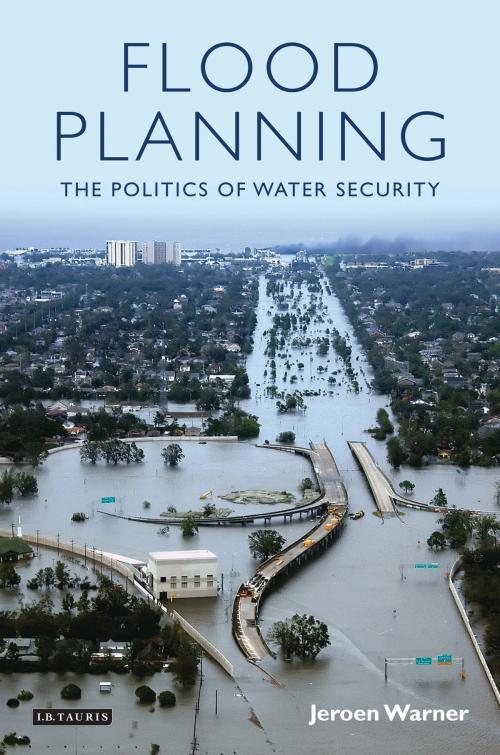Flood Planning
The Politics of Water Security
Nonfiction, Social & Cultural Studies, Political Science, Politics, Regional Planning, Government, Science & Nature, Nature| Author: | Jeroen Warner | ISBN: | 9780857731500 |
| Publisher: | Bloomsbury Publishing | Publication: | February 28, 2011 |
| Imprint: | I.B. Tauris | Language: | English |
| Author: | Jeroen Warner |
| ISBN: | 9780857731500 |
| Publisher: | Bloomsbury Publishing |
| Publication: | February 28, 2011 |
| Imprint: | I.B. Tauris |
| Language: | English |
Floods are amongst the most common and most devastating natural disasters. A major flood may cause the death of thousands, sometimes millions, of people and cause immense damage. It may also challenge a government's legitimacy if warning measures or flood protection systems are perceived as having been inadequate. In the wake of such an event, the pressure to initiate flood protection schemes that will provide security is enormous, and politicians promise quick solutions in the national interest.
Jeroen Warner looks at a number of such projects from around the world - from the Middle East, South Asia and Western Europe - aimed at the prevention of serious flooding. Each provoked a level of controversy unforeseen by its initiators, with the result that projects were shelved, modified, were not completed, or simply failed at the first test. Even a well organized participation process with joint or open planning did not exempt planners from the difficult political dynamics that arose.
Flood politics are not like ordinary politics. They are about life and death, and a flood event may legitimize extraordinary measures in which normal rules do not apply. The author shows how projects created in response to such situations inevitably become politicised as different stakeholders seek to promote their interests. The result is a pioneering book that provides the first comprehensive account of the politics and decision-making surrounding flood planning and of the lessons to be learned.
Floods are amongst the most common and most devastating natural disasters. A major flood may cause the death of thousands, sometimes millions, of people and cause immense damage. It may also challenge a government's legitimacy if warning measures or flood protection systems are perceived as having been inadequate. In the wake of such an event, the pressure to initiate flood protection schemes that will provide security is enormous, and politicians promise quick solutions in the national interest.
Jeroen Warner looks at a number of such projects from around the world - from the Middle East, South Asia and Western Europe - aimed at the prevention of serious flooding. Each provoked a level of controversy unforeseen by its initiators, with the result that projects were shelved, modified, were not completed, or simply failed at the first test. Even a well organized participation process with joint or open planning did not exempt planners from the difficult political dynamics that arose.
Flood politics are not like ordinary politics. They are about life and death, and a flood event may legitimize extraordinary measures in which normal rules do not apply. The author shows how projects created in response to such situations inevitably become politicised as different stakeholders seek to promote their interests. The result is a pioneering book that provides the first comprehensive account of the politics and decision-making surrounding flood planning and of the lessons to be learned.















